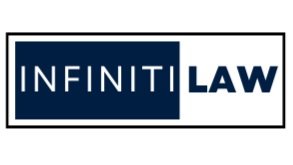The US Citizenship and Immigration Service (USCIS) has proposed a new 155 page ‘International Entrepreneur Rule’ which will be published in the Federal Register this week for a 45 day public comment period. Note, this rule has not yet taken effect and will not take effect until the date indicated in the final rule when that is published. Unlike other startup visas previously proposed through Congress that have stalled, this new rule is circumventing Congress by utilizing the Department of Homeland Security’s existing discretionary statutory parole authority to parole into the US entrepreneurs of startup entities whose stay in the United States would provide a significant public benefit through the substantial and demonstrated potential for rapid business growth and job creation. They estimate that 2940 entrepreneurs will be eligible for parole each year under this proposed rule.
Current proposed requirements for entrepreneurs:
· Have a significant ownership interest in the startup (at least 15 percent) and havean active and central role to its operations;
· Startup was formed in the United States within the past three years; and
· Startup has substantial and demonstrated potential for rapid business growth and job creation, as evidenced by:
o Receiving significant investment of capital (at least $345,000) from certain qualified U.S. investors with established records of successful investments;
o Receiving significant awards or grants (at least $100,000) from certain federal, state or local government entities; or
o Partially satisfying one or both of the above criteria in addition to other reliable and compelling evidence of the startup entity’s substantial potential for rapid growth and job creation.
The initial stay would be up to two years with a possible extension for up to three additional years. The flexibility in the third criteria for demonstrating rapid business growth and job creation potential is very refreshing and unusual for USCIS regulations which are typically very rigid; this provision aims to actually address the realities of the startup environment and allows more startups to demonstrate that they should be allowed to enter even if they do not meet the strict requirements. There is a limit of three entrepreneurs per company that could qualify.
In its current form, this rule allows spouses of entrepreneurs to enter the US as well. They would not have automatic work authorization but would be allowed to apply for an Employment Authorization Document after entering the US.
Some potential drawbacks of the rule as written:
· Only investments from ‘established US investors…with a history of substantial investment in successful startup-entities’ will count. To be a qualified US investor as defined in the regulation, the individual or organization has to have made investments of no less than $1 million in 3 out of the last 5 years; at least two of those investments have to have created at least 5 qualified jobs or at least $500,000 in revenue with average annualized revenue growth of at least 20%. Under this rule, foreign venture capital investment will not count so many startups will be limited by this. The documentation requirements will be especially burdensome for smaller angel investors. Also, being able to document meeting this requirement inherently relies on other companies’ willingness to release confidential records.
· Timing of the investments: The startup has to have received at least $345,000 from one or more qualified investors within 365 days preceding the filing of an initial application for parole. This timing requirement for investment may limit many existing startups who have been unable to secure other visas to date and who should rightfully be able to benefit from this new rule as well.
Again, this is only a proposed rule currently so it has not yet gone into effect. Also, modifications to the rule may be made prior to the issuance of the final version.
FOR MORE INFORMATION & UPDATES VISIT OUR INTERNATIONAL ENTREPRENEUR RULE RESOURCE PAGE
